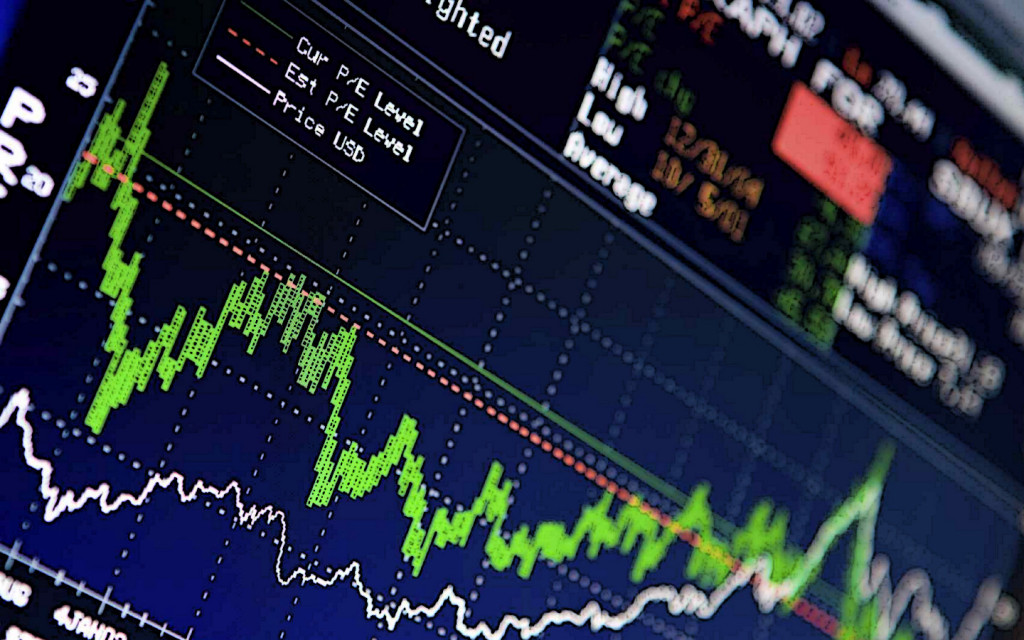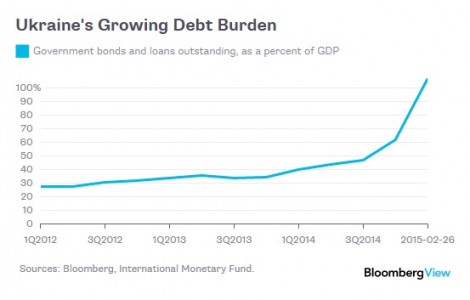Kiev has again threatened to selectively default on the $3 bln Russian loan but the IMF is still set to supply the country with more financing. Meanwhile the EU has asked Russia not to impose a food embargo on Kiev but keeps the illegal anti-Russian sanctions in place. Finally the EU has agreed to mark all products imported from illegal Jewish settlements in Israel in a bid to decry the international law defying practice of the country. 
Written by Frank Jakob exclusively for SouthFront
Kiev considers defaulting on $3 bln debt to Russia while Russia tries to block new IMF loan. Ukrainian Finance Minister Natalie Jaresko said in an interview to a local TV station that Kiev could default if it fails to make repayment for a $3 billion Eurobond loan, due in December. The US-born minister said that she would talk with her Russian counterpart about restructuring the loan. However, Russia repeatedly stated that it is not taking part in the restructuring process with other creditors of Kiev. Meanwhile the IMF has pulled some strings and changed its rules in order to save Ukraine from bankruptcy. Normally the IMF is forbidden by its own rules to lend money to a state that is already in selective default but the IMF announced last week that it will give Ukraine a new $ 17.5 bln loan even if they do not pay back the Russian debt. This is because the $ 3 bln loan gives Russia political leverage over Ukraine, possibly forcing Kiev into negotiations about other things like the war in Donbas. Such a situation is of course not in the interest of the US-dominated IMF. Russia is already seeking ways to block the new IMF loan, Bloomberg cites a source familiar with the matter.
EU asks Russia not to impose food embargo on Ukraine. EU has asked Moscow officially not to embargo Ukrainian food exports to the country after 1st of January 2016, the date the Association Agreement comes into force. EU Trade Commissioner Cecilia Malmstrom said, that she was doing everything in her power to prevent a food embargo against Ukraine. The embargo would mean financial losses for Ukraine amounting to $140 – 205 million. This sounds low but is a lot nowadays, given the desolate situation the Ukrainian economy is currently in. Russia said that it was not planning to impose a food embargo, rather it plans to impose import taxes and tariffs on Ukrainian imports because Ukraine will no longer be part of the Commonwealth of Independent States (CIS) by then. It is guaranteed that import taxes on Ukrainian food will have the same effects as an embargo. The tariffs will make Ukrainian food uncompetitive and unattractive on the Russian market and the demand will strongly decrease. Russia should have no interest in easing the economic situation in Ukraine because the current situation is the biggest threat to the anti-Russian Poroshenko government. In fact, the Ukrainian people has seen rampant poverty since the Maidan coup, a poverty that was last seen shortly after the dissolution of the USSR.
EU to mark all products out of Jewish settlements in Israel. The European Commission has issued new guidelines that make markings on products mandatory to inform the customer that the product comes from illegal Israeli settlements. Israeli Prime Minister Benjamin Netanyahu sees the move as a hidden attempt on boycotting Israeli goods. However, the EU sees it as a direct consequence following the illegal settlements that are being created within Palestinian lands. It considers the settlements built on territory occupied in 1967 to be illegal under international law. The settlement activity is increasing Israeli territories while often Palestinian homes get bulldozed under false pretenses like missing a building permit. Prime Minister Netanyahu said the EU “should be ashamed of itself” and called the decision “hypocritical and a double standard”. As a response the Israeli foreign ministry has summoned the EU ambassador to Israel and said it would suspend diplomatic dialogue in the coming weeks.




